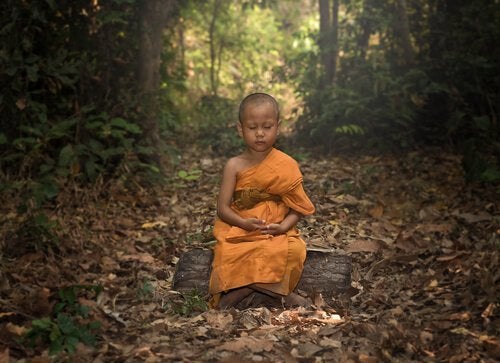We often hear of ego as the cause of a person’s pride or guilty of suffering in an undesirable situation, but what is ego and how does it influence our happiness?
For Western psychology it is a representation we make of ourselves, however, from a Buddhist point of view, ego is an activity, the recurring tendency to identify with everything that has that representation that we believe to be.
- In this Buddhist account we will see how this identification separates us from the world and brings us suffering and dissatisfaction.
- As well as fostering competition.
- Good reading.
“Happiness is not something you need to acquire. You’re still happiness. This desire arises from the feeling of being incomplete. For whom is there this feeling of being incomplete? Investigates. You’re happy when you sleep soundly. What interfered between this happiness and this misfortune?The ego. Find your origin and discover that you are happiness. ?
-Ramana Maharshi-
Joel had already reached one of Tibet’s oldest Buddhist communities three years ago, and there he wanted to form to become an exemplary monk.
Every day, at dinnertime, he would ask his teacher if the ceremony of his ordination would take place the next day. “You’re not ready yet, first you have to work on humility and dominate your ego,” his mentor replied.
Ego? The young man did not understand why the teacher meant his ego, he thought he deserved to follow his spiritual path because he continued to meditate and read Buddha’s teachings daily.
One day, the teacher devised a way to prove to his disciple that he was not yet ready. Before starting the meditation session, he announced, “Whoever meditates best will have an ice cream as a price. “Chocolate, added the eldest.
Shortly after a brief tumult, the youth of the community began to meditate, Joel wanted to be the best meditator among all his companions, in this way I will show the teacher that I am ready for the ceremony and I can have an ice cream. ?, concluded the disciple.
Joel managed to concentrate on his breathing, but at the same time visualized a large chocolate ice cream coming and going like a swing. “Isn’t it possible, do I have to stop thinking about ice or is anyone else going to earn it?”He repeated.
With great effort, Joel was able to meditate for a few minutes during which he simply followed the rhythm of his breathing, but soon after imagined one of the monks eating the chocolate ice cream. Should I have this ice cream !?, thought the young man was distraught.
At the end of the session, the teacher explained that everyone had done their homework well except someone who had thought too much about ice cream, that is, in the future. He composed himself before speaking:
? Master, I thought of ice cream. I admit it, but how do you know I’ve thought too much?
? I have no way of knowing. But I can see that you felt so affected that you got up and tried to get above your teammates Then, dear Joel, the ego acts: do you feel attacked, questioned, offended?And he always wants to be right in the game, to be superior to others.
That day Joel knew that he still had a long way to go, worked on his humility and selfish impulses, lived in the present, and tried not to be above others, he also realized that he did not want to identify with his accomplishments.
Then, with a lot of work and patience, the big day arrived, in which the teacher knocked on his door to announce that he was finally ready for what he had longed for.
When he arrived at the temple he found no one there, just a small platform and a chocolate ice cream, Joel was able to enjoy the ice cream with gratitude, without feeling disappointed, and then was ordained a monk.
Each one has their own chocolate ice cream: what they intend to achieve, the problem is to have their minds set on it, preventing us from enjoying the present.
We tend to confuse our achievements with our value and identify with them. The ego makes us want to be above others and offends us if someone points us out by mistake.
If we are able to detect our own ego and disable it, we automatically abandon the need to criticize, discuss, compete or judge, so do we get rid of the role of the victims, the suffering it represents not meeting the demands of the ego?We can enjoy the ice cream!
Original story of Mar Pastor
Last image courtesy of Nadezda Murmakova / Shutterstock. com

